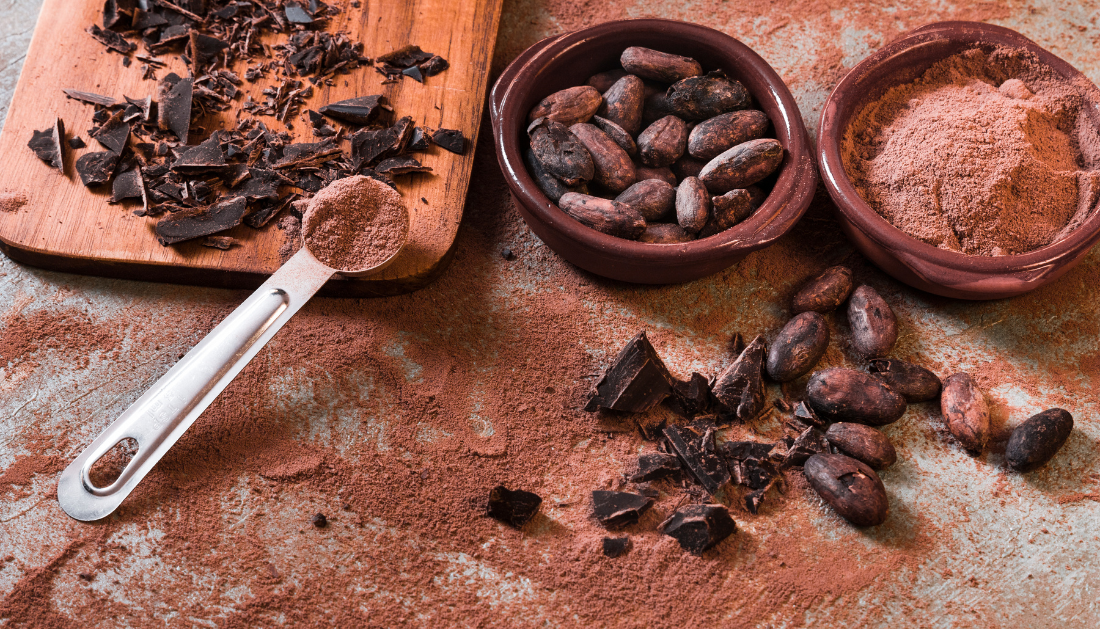

Cocoa Flavonols on combatting Stress: Stress and bad dietary choices frequently coexist, resulting in a vicious cycle that can harm cardiovascular health. Acute emotional stress has been shown to alter vascular function, increasing the risk of cardiovascular disease over time.
This problem is exacerbated when stressed people eat high-fat foods, which have been linked to delayed vascular repair. A recent study published in Food & Function looked at whether cocoa flavonols—compounds found in specific fruits, vegetables, and cocoa products—could counteract these negative effects.
The randomized, double-blind, crossover trial included 23 young, healthy adults who were served a high-fat meal (56.5 g of fat) with either high-flavonol or low-flavonol chocolate.
The participants next completed an acute stress challenge intended to simulate real-world mental stress. The researchers examined vascular and cerebral parameters before and after the stress test to assess cocoa flavonols’ preventive potential.
Stress, diet, and cardiovascular impairments
Stress has long been associated with acute and chronic cardiovascular issues. Mental stress can produce transitory endothelial dysfunction, as seen by reduced flow-mediated dilatation (FMD) of the brachial artery.
FMD assesses how well blood vessels dilate in response to increasing blood flow, which is an important sign of vascular health. A 1% decrease in FMD has been linked to a 9-13% increase in future cardiovascular events like heart attack or stroke.
Stress also alters eating behavior, generally leading to increased consumption of high-fat and sugary foods. These food choices not only increase weight gain, but they also worsen stress-related vascular dysfunction.
Fat consumption during stressful times has been demonstrated to impede endothelium healing, delaying the return to normal vascular function following a stressful incident.
Key findings from the study
Peripheral vascular benefits of flavonols
more recommended stories
 Advanced Prostate Cancer and Serial ctDNA Analysis
Advanced Prostate Cancer and Serial ctDNA AnalysisKey Takeaways Serial liquid biopsies using.
 Tuberculosis Breakthrough with Experimental Antibiotics
Tuberculosis Breakthrough with Experimental AntibioticsKey Takeaways Experimental antibiotics disrupt a.
 National Healthy Longevity Trial Receives Federal Support
National Healthy Longevity Trial Receives Federal SupportKey Summary Up to $38 million.
 Vascular Health Linked to Early Alzheimer’s Brain Changes
Vascular Health Linked to Early Alzheimer’s Brain ChangesKey Takeaways Brain vascular health is.
 Red Blood Cells Improve Glucose Tolerance Under Hypoxia
Red Blood Cells Improve Glucose Tolerance Under HypoxiaKey Takeaways for Clinicians Chronic hypoxia.
 Nanoplastics in Brain Tissue and Neurological Risk
Nanoplastics in Brain Tissue and Neurological RiskKey Takeaways for HCPs Nanoplastics are.
 AI Predicts Chronic GVHD Risk After Stem Cell Transplant
AI Predicts Chronic GVHD Risk After Stem Cell TransplantKey Takeaways A new AI-driven tool,.
 Red Meat Consumption Linked to Higher Diabetes Odds
Red Meat Consumption Linked to Higher Diabetes OddsKey Takeaways Higher intake of total,.
 Pediatric Crohn’s Disease Microbial Signature Identified
Pediatric Crohn’s Disease Microbial Signature IdentifiedKey Points at a Glance NYU.
 Nanovaccine Design Boosts Immune Attack on HPV Tumors
Nanovaccine Design Boosts Immune Attack on HPV TumorsKey Highlights Reconfiguring peptide orientation significantly.

Leave a Comment